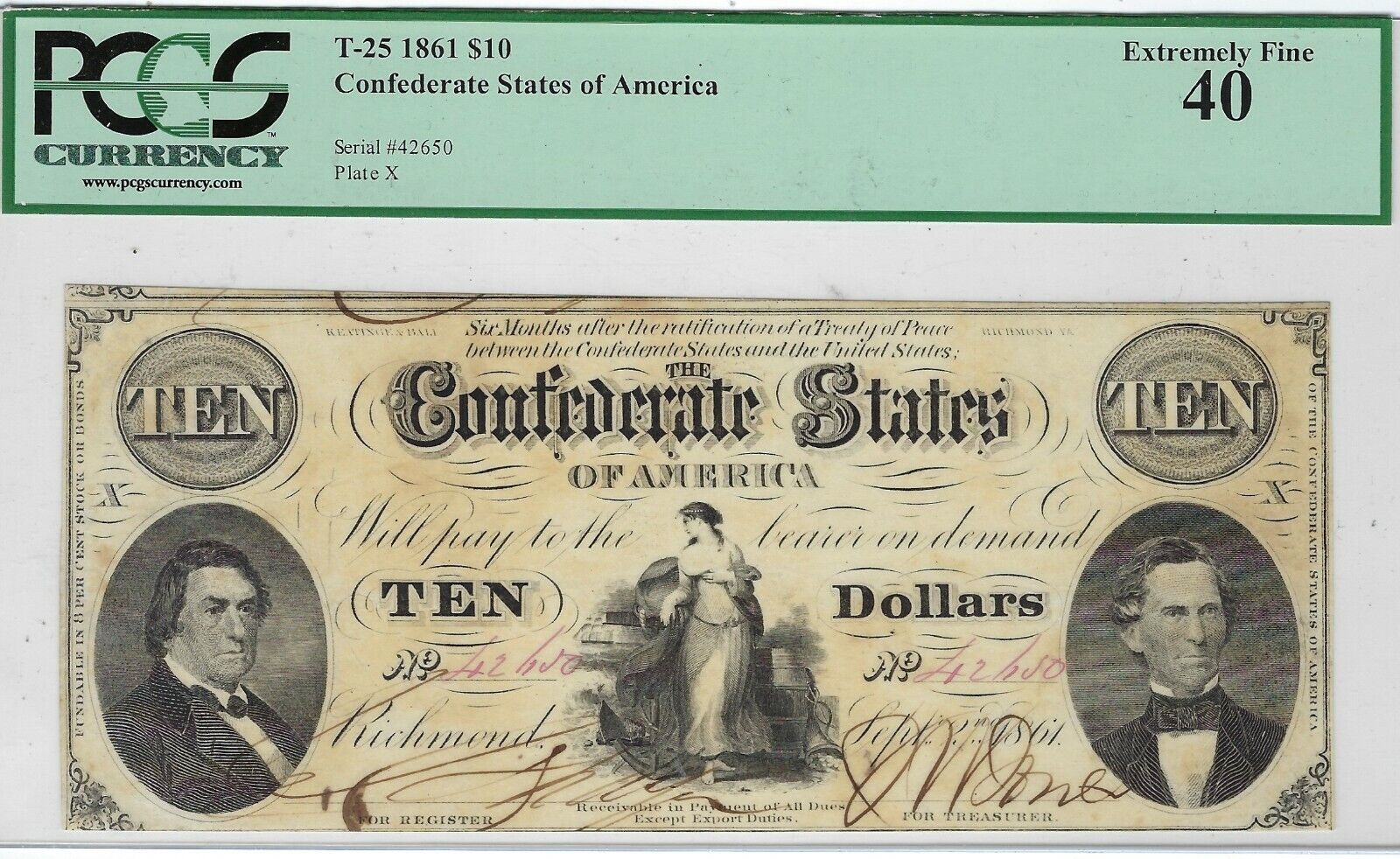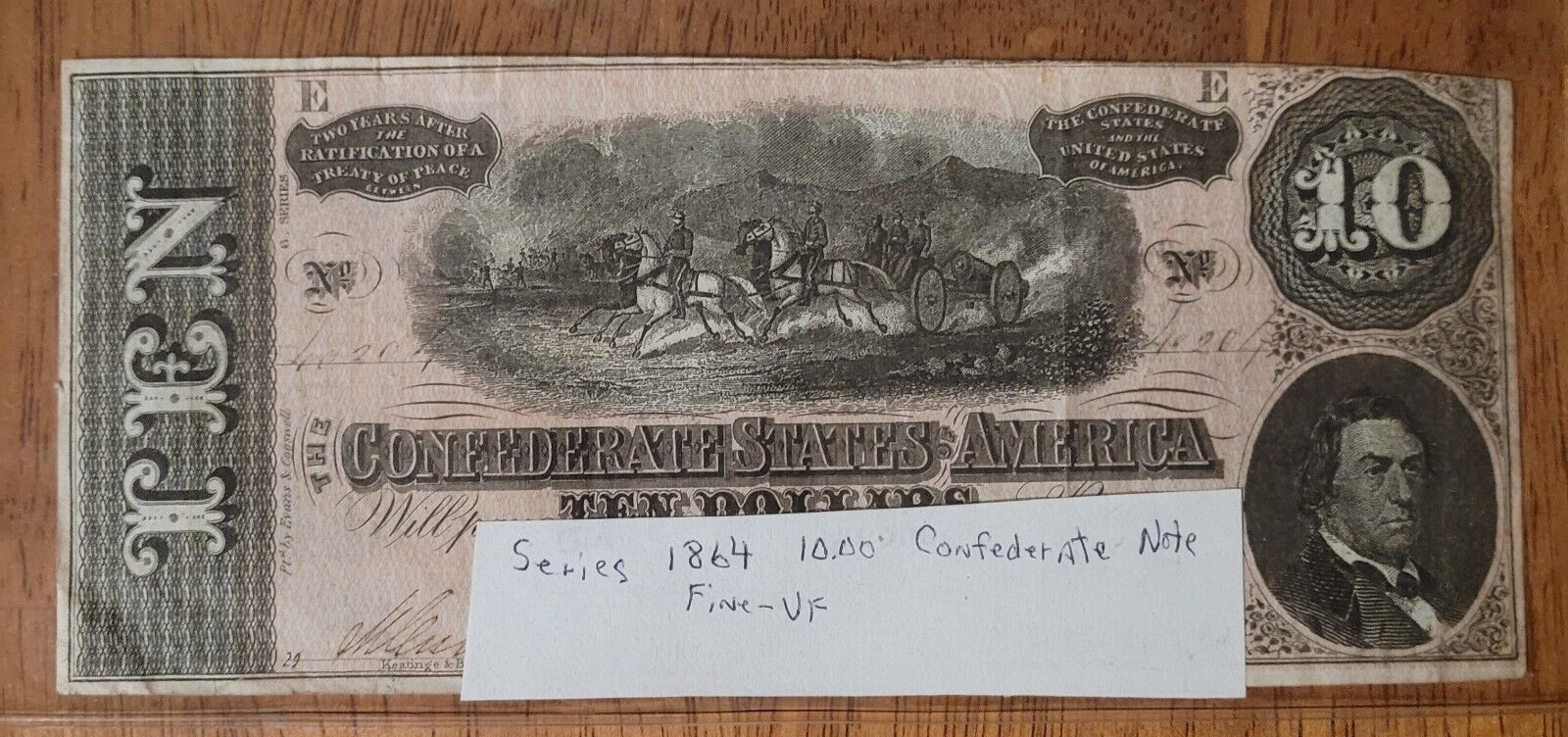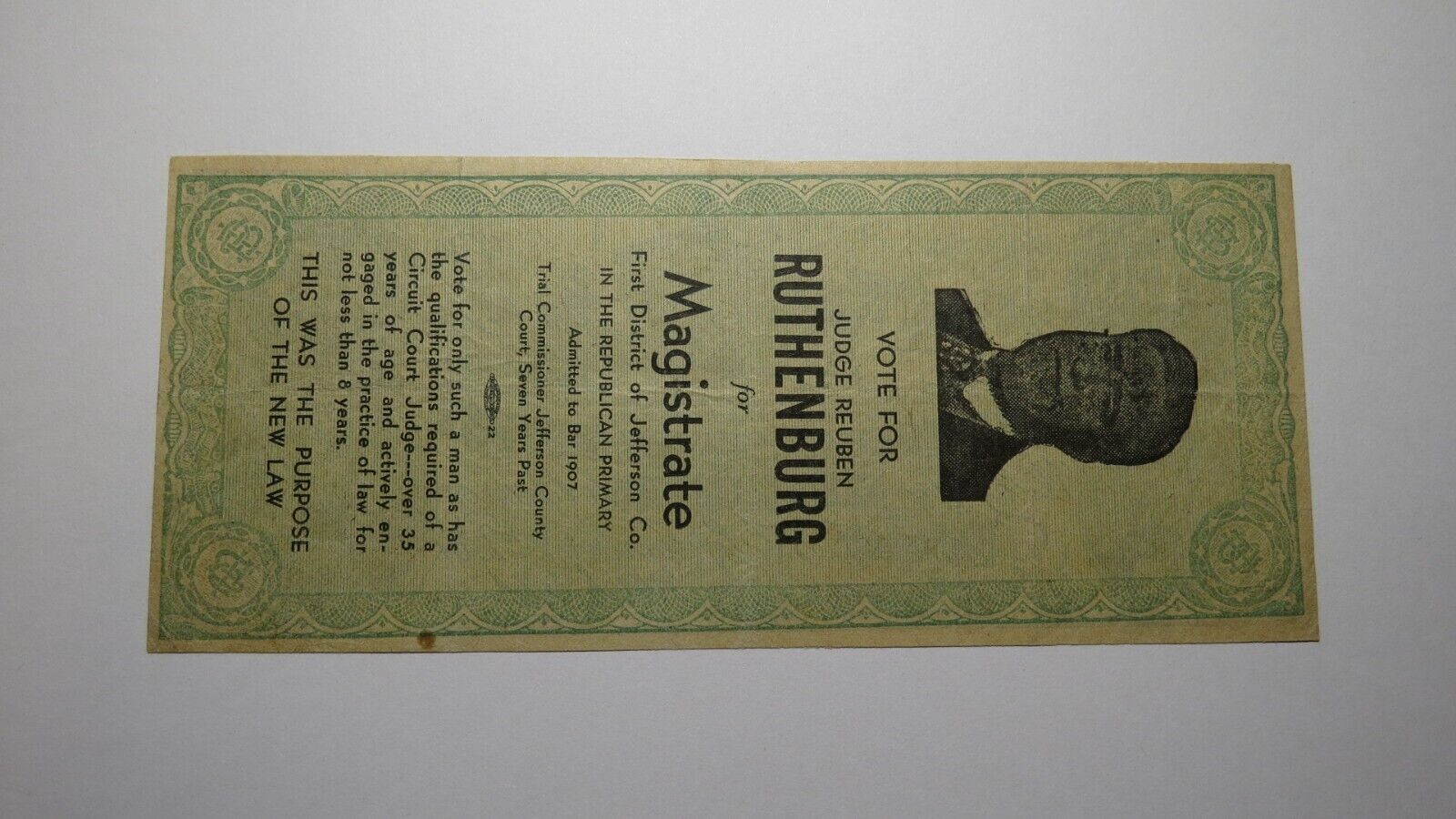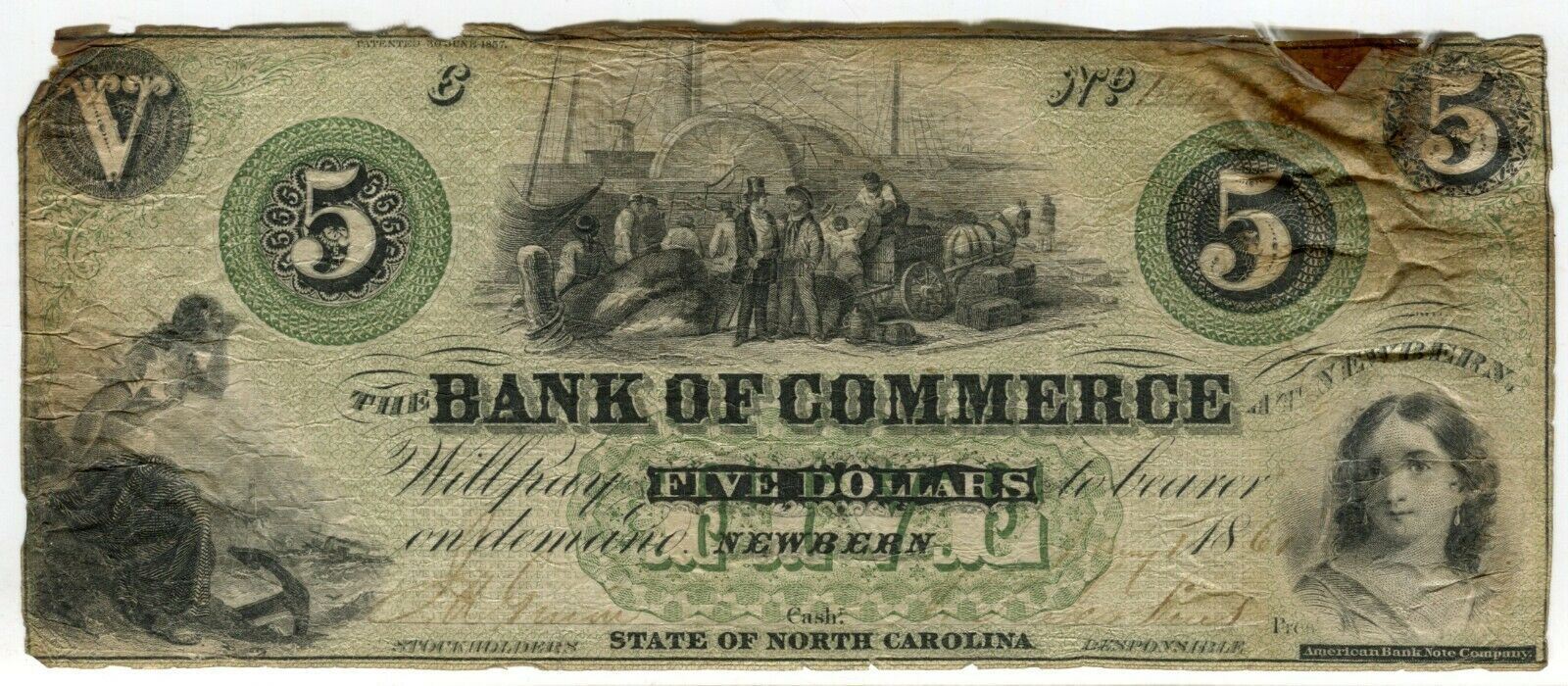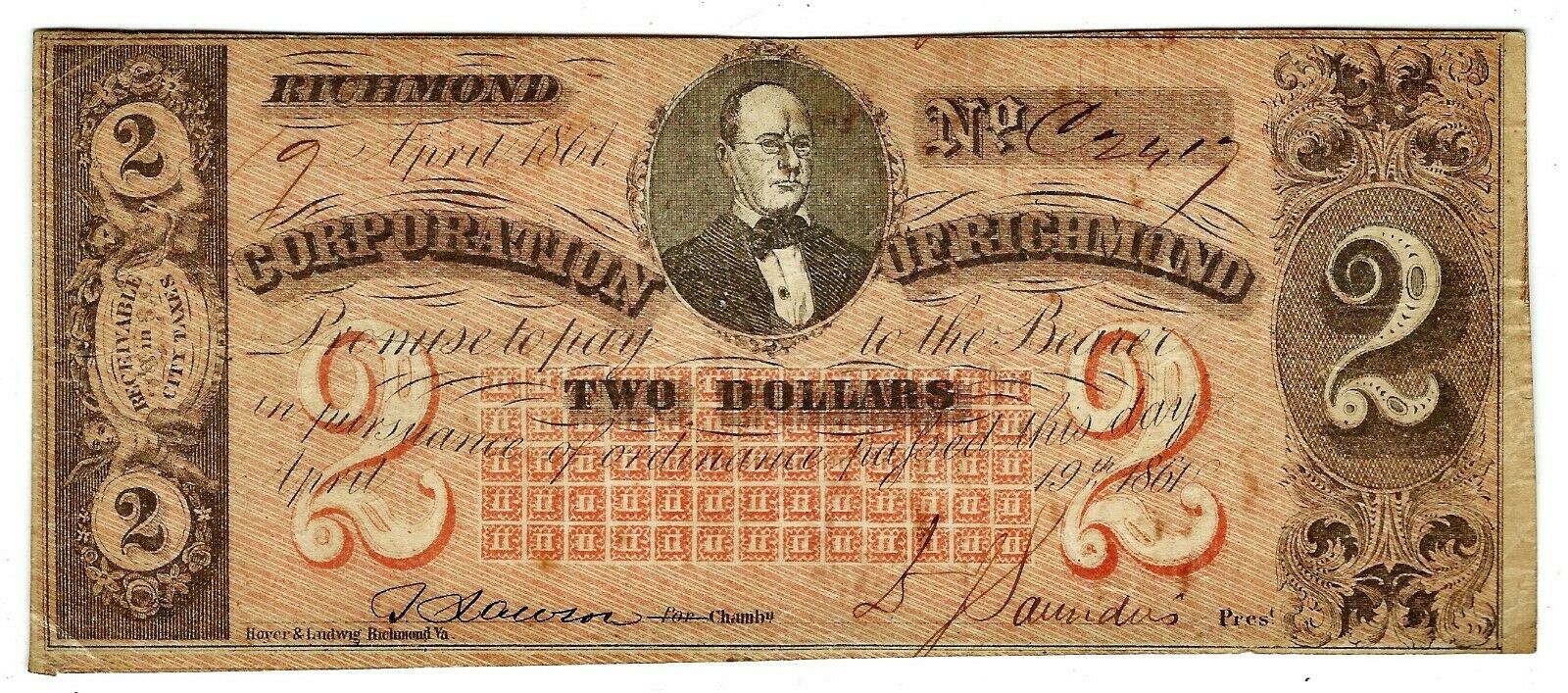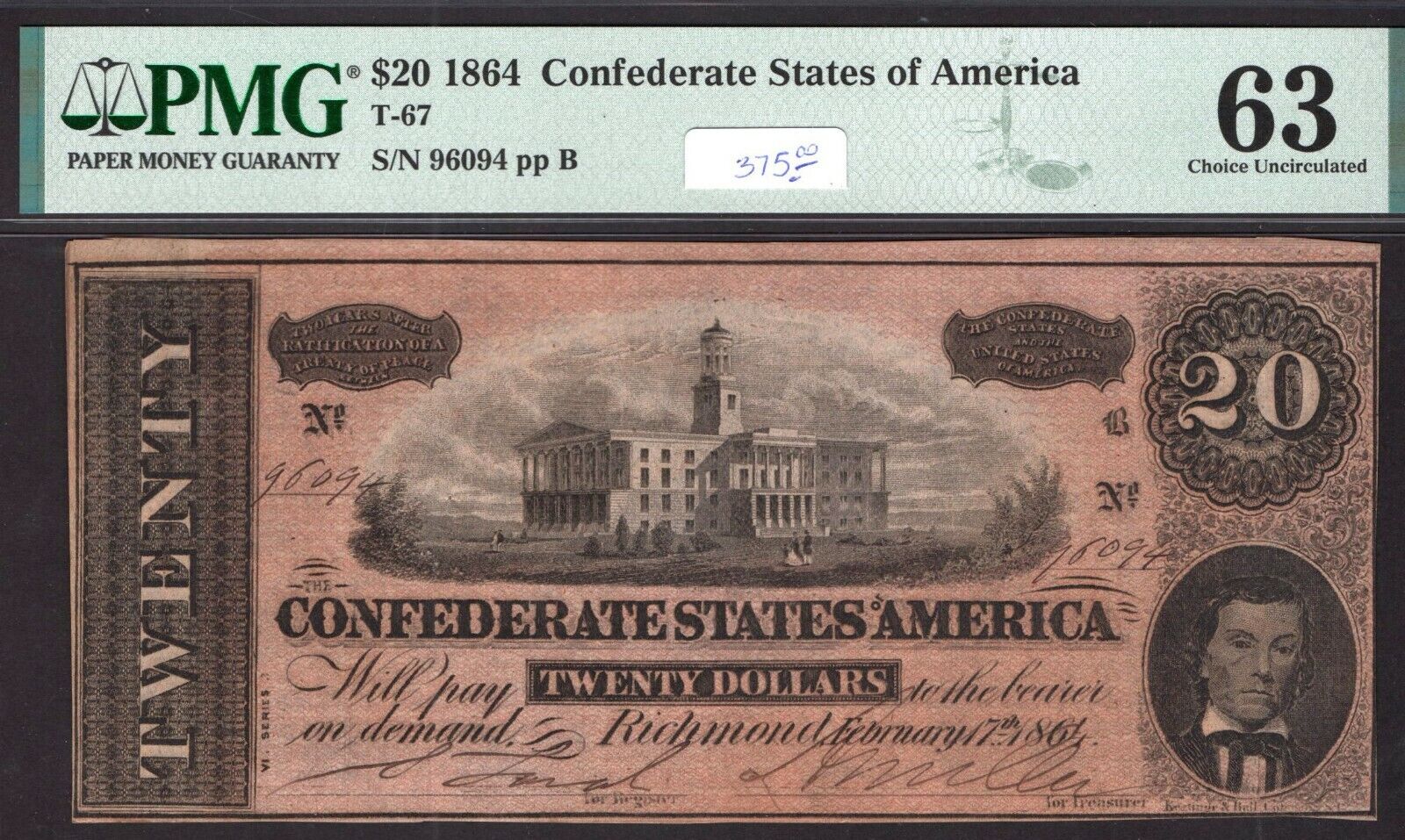
T-25 PF-2 $10 1861 Confederate Paper Money – PCGS-C Extremely Fine 40 – bright!
$388.08
100
Grade: 40
Certification: PCGS Currency
Country/Region of Manufacture: United States
Denomination: $10
Item Type: Confederate Currency
Condition: Better grade 1861 CSA $10 note. Bright color and cleaner presentation than usual found on this type.
Date: September 2, 1861
Type: 25
T-25 PF-2 $10.00 CSA Currency.
R. M. T. Hunter, left. Hope
with anchor in the center. C. G. Memminger, right.
Issued from May 12, 1862 through August 9, 1862.
Printed on paper watermarked CSA in block letters.
Serial number 42650. Plen X.
PCGS Currency Extremely Fine 40!
Bright color and cleaner presentation than usual found on this type. Hard to find grade in a hard to find eye appeal and color!
Genuine.
This
high quality $10 note printed in 1862 is another Keatinge & Ball product.
Before long there were many highly deceptive counterfeits produced. Keatinge
& Ball completed their work in Richmond even as McClellan threatened the
city. At right is a portrait of Christopher Gustavus Memminger, the Secretary
of the Confederate Treasury. To the left is R. M. T. Hunter, Secretary of
State. In the center is a female representing Hope, leaning on an anchor.
Receivable in payment for all dues except export dues and fundable in
Confederate States stock bearing 8% interest six months after the ratification
of a treaty of peace between the Confederate States and the United States.
This
type comes on high quality bank note paper. It may be found on plain paper as
well as several different kinds of watermarked paper, including “CSA” in block
and script letters, the underrated “J Whatman”, and the extremely rare “Wookey
Hole Mill”. This later watermark is an English paper that Mr. Keatinge helped procure,
but few reams made it through the blockade. The Whatman and Wookey Hole Mill
varieties are very to extremely rare. There is an error or variation, if you
will, where a flourish was omitted above the word “bearer”.
This
type is rare in Uncirculated. There are more in XF to AU, and some of these are
nicer and worth more than strict Uncirculated notes that are not as well cut.
It is not easily found in XF or even nice VF. However, occasionally one will
appear at auction.
A note about 3rd party grading. PCGS
and PMG do a good job putting a floor on quality within a grade range and have
become proficient in detecting repairs (though occasionally they miss
something, or see something that is not there, as we all can).
Notes housed in Net or Apparent
holders have a wide range of quality from very nice (in rare cases may be
nearly choice) to dogs with major problems, so each needs to be evaluated on
their own.
However, PMG and PCGS focus on
technical grading due to circulation and damage and do not have a mechanism for
evaluating condition or eye appeal – whether a note is average, better than
average, choice or gem for the grade based on its color, trim and margins. The
exception to this are slabbed notes of New or Uncirculated grades to some
degree. This is important as Very Fine, Extremely Fine or AU notes can have a
wide range of values depending on these factors not reflected in the slab
grade. A fully framed Confederate or obsolete note is worth considerably to a
lot more than one that is trimmed into the margin for the same grade. Likewise,
color is important. These factors can affect the value of a note by 50%, 2-1 or
even 3-1, e.g., an AU 58 (PPQ or not) T-20 1861 $20 CSA note trimmed into
the margin is worth between $150 and $300. The same grade, AU 58 (PPQ or
not), with a full frame and good color/inking is worth something like $500
to $1000 depending on eye appeal. I will continue to use the terms plus for
above average, choice and gem to mean varying degrees of superiority of
condition and eye appeal of a note within a grade as documented in my book
which is based on what collectors seek out and pay premiums for.
In coins, we’ve seen the third party
graders add things like full bell lines, full head, full bands which reflected
the market. I’d expect either the grading services or another party to do the
same for paper money. If you are just buying the number on the holder for the
best price, you may well be buying low end notes for the grade!
Pierre Fricke. Immediate Past President of the Society of Paper Money Collectors; Professional Numismatists Guild (PNG); Professional Currency Dealers Association (PCDA); ANA, EAC, etc…
BuyVintageMoney.
Author of the standard guide book to Confederate money – Collecting Confederate Money Field Edition 2014.
Free shipping and insurance.
eBay has announced that it will start to collect sales tax on behalf of sellers for items shipped to customers in Alabama (Jul 1), Connecticut (Apr 1), Iowa (Feb 1), Minnesota (Jan 1), New Jersey (May 1), Oklahoma (Jul 1), Pennsylvania (Jul 1), and Washington (Jan 1). Additional states are being added like Idaho and more than 20 others. This is the new internet tax out of the US Supreme Court Wayfair decision. Buyers are responsible for paying this sales tax.
See eBay information for list of states eBay charges this tax payable by buyers to eBay as part of eBay invoices — https://www.ebay.com/help/selling/fees-credits-invoices/taxes-import-charges?id=4121#section4

